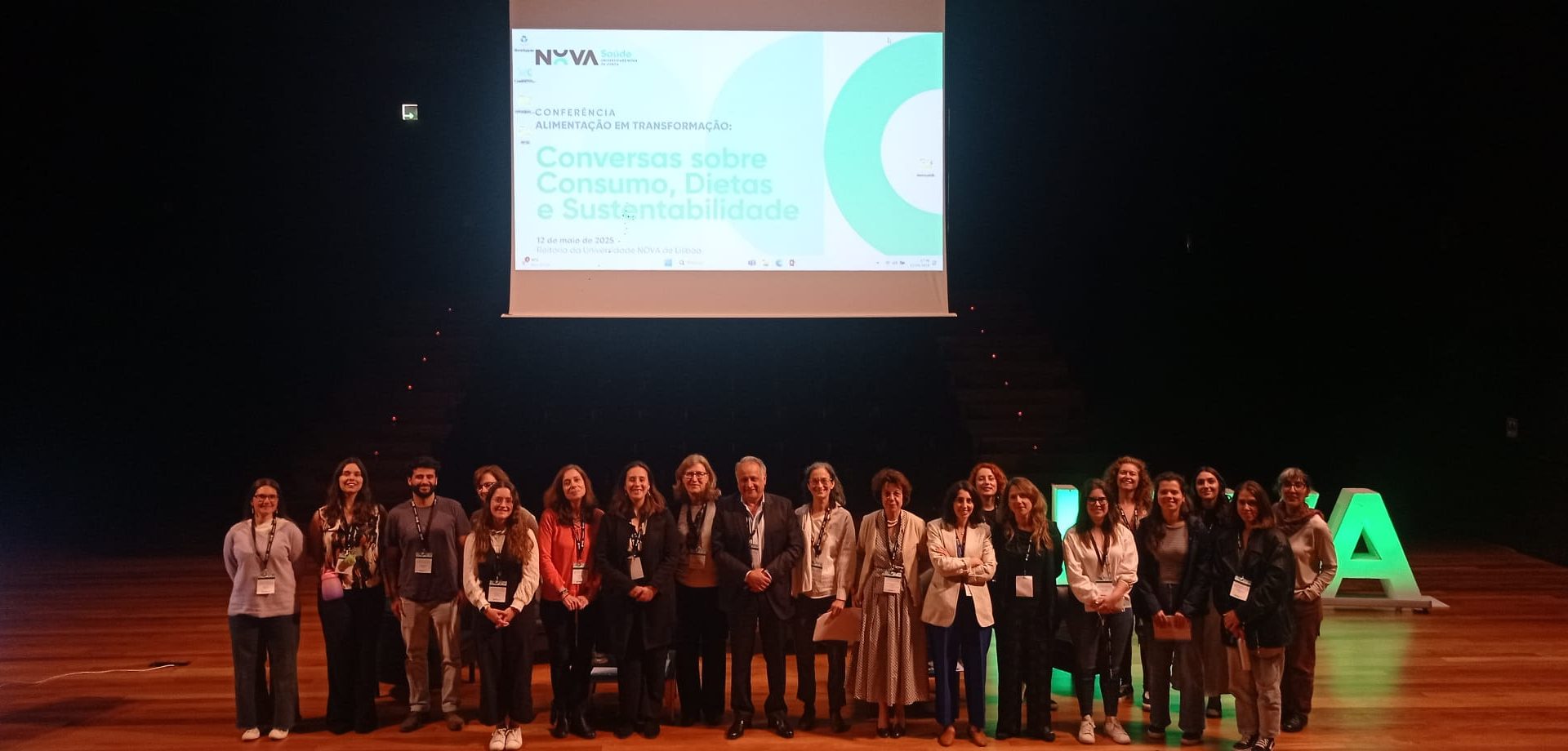“Food in Transformation – Conversations about Consumption, Diets and Sustainability” was the theme of the conference organised by the Nutrition group at NOVA Health, formed by professors Iva Pires (FCSH), Carlota Vaz Patto (ITQB) and Luis Pereira da Silva (NMS), and which brought together experts from various areas to reflect on the challenges of today’s food and its implications for public health and the planet.
The opening session included a speech by the Pro-Rector coordinator of NOVA Health, Cláudio Soares, who was represented by Luís Pereira da Silva, paediatrician and co-coordinator of the Nutrition group.
The speech emphasised the importance of collaboration between NOVA’s various units, which are located in Lisbon, Almada, Oeiras and Cascais, to develop interdisciplinary health solutions. ‘This is one of the most diverse conferences I have attended within the scope of NOVA Health’, he said, thanking the organising team for their commitment and highlighting the role of the eight NOVA Health thematic groups, including the Nutrition group.
The revolution on the plate and the science behind flavour
The first roundtable was titled “The Revolution on the Plate: What has changed in our diets?”, the conversation focused on the impact of biotechnology, plant breeding, and the cultural evolution of the human palate. Several NOVA units were represented by researchers, including ITQB NOVA, ENSP NOVA, NMS and NOVA FCSH. Iva Pires, a researcher at NOVA FCSH, moderated the discussion.
Topics discussed included the role of improved plants in food diversification (Carlota Vaz Patto, ITQB NOVA), the use of biotechnology to create sustainable foods (Rita Abranches, ITQB NOVA) and re-educating taste based on medicine’s role. Over the centuries, medicine has influenced our eating habits by shaping our perception of taste from a health point of view. However, this change must be adapted to the motivations and individual profiles of consumers (Inês Mota/NMS and Cristina Godinho/ENSP NOVA).
Influences at the table: between communication, education and changing habits
In the second roundtable discussion, ‘At the table with influences: what shapes our food choices?’, the role of communication, culture and food education was considered. Ana Margarida Barreto (NOVA FCSH) highlighted the importance of differentiated communication strategies for children, the elderly and each age group within the scope of the project she coordinates, ‘Communication for Health: Exploratory Study for the Promotion of Healthy Eating’. She underlined the need to use the same strategies, tactics and tools used by major food industry brands to promote healthy eating in a conscious and ethical way. Iva Pires addressed the normalisation of food waste, while Luís Pereira da Silva emphasised the importance of educating the palate from childhood. Catarina Espanhol (EUREST Portugal) advocated a more integrated approach to informing and educating citizens.
The session concluded with the consensus that achieving food transformation necessitates dialogue between disciplines, sectors, and generations. This first conference organised by the NOVA Saúde Nutrition group was characterised precisely by this spirit of sharing and collaboration.

